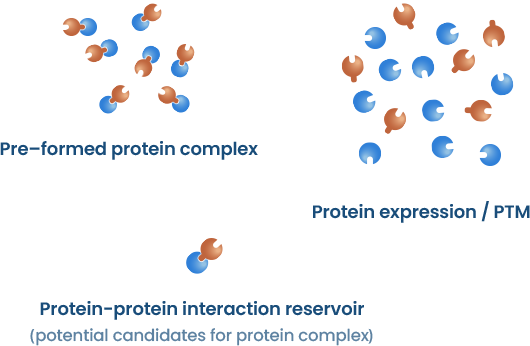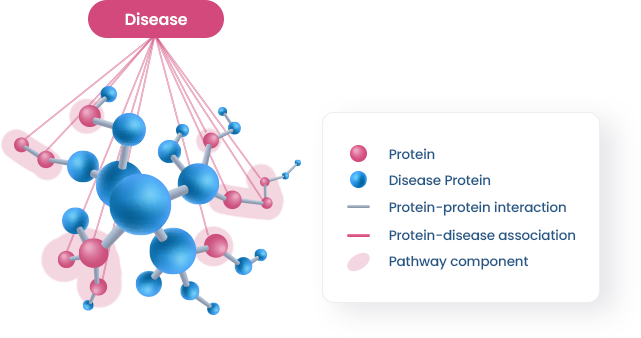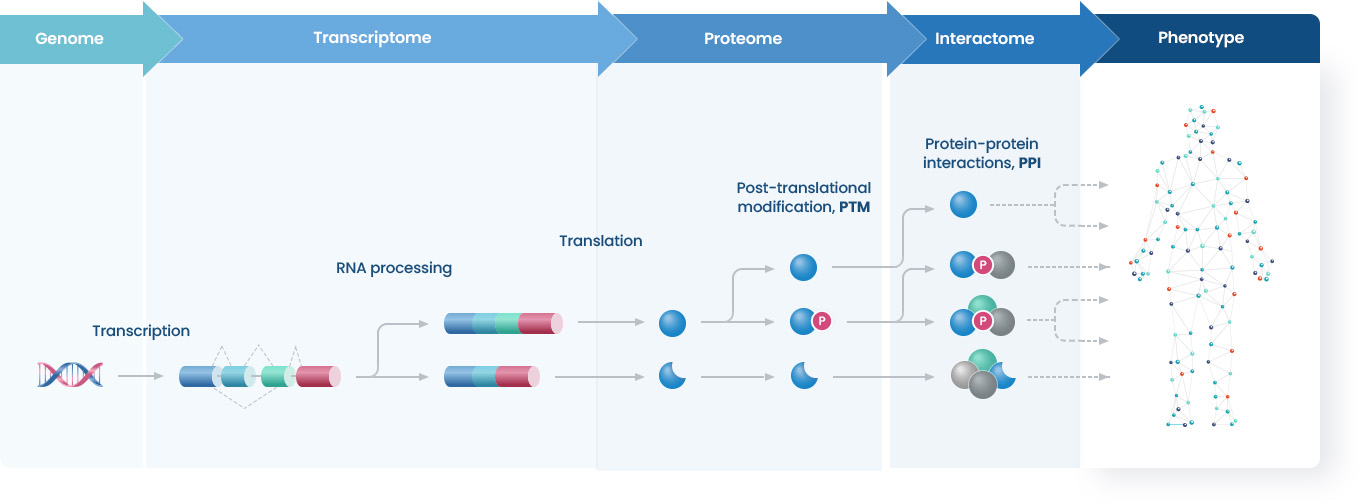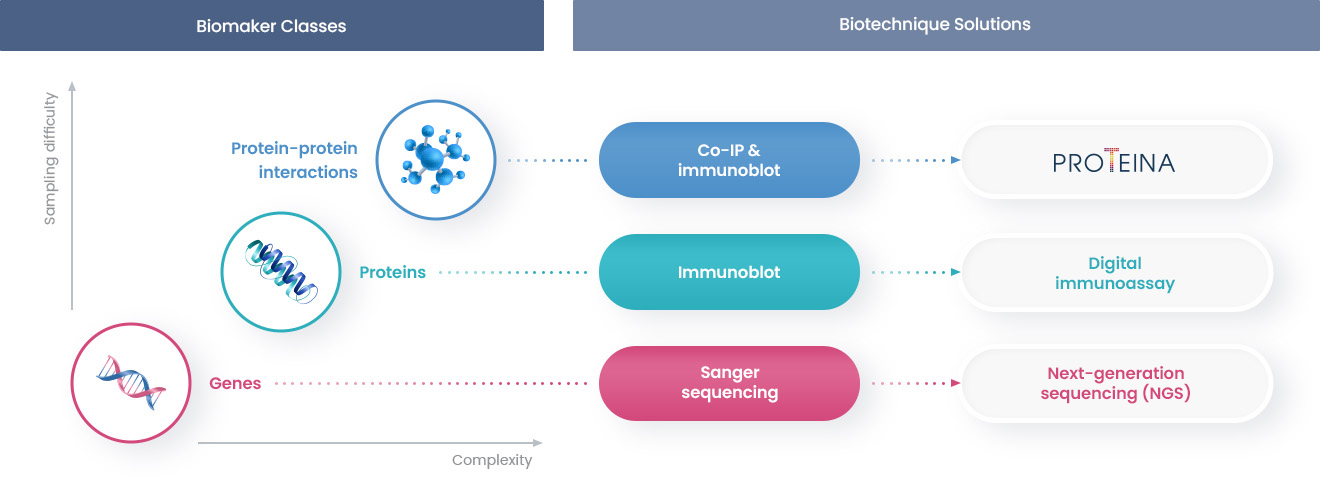Understanding protein-protein interactions is pivotal for advancing
the discovery of life's fundamental mechanisms, driving innovation in
biomedical research and therapeutic development
Source: Isabell Bludau et al. Proteomic and interactomic insights into the molecular basis of cell functional diversity. Nature Reviews Molecular Cell Biology (2020)
Protein-Protein Interactions (PPIs) are fundamental to the intricate communication processes within living organisms.
They play a pivotal role in various biological functions, including human development, growth, aging, and the body's response to different diseases.
While genetic information can be likened to a comprehensive archive of life's historical data, PPIs represent the dynamic exchange of
information that continuously maintains and regulates current biological processes.
We focus on navigating protein interactions to find answers
everyone’s seeking



In the human body, an estimated 20,000 proteins engage in approximately 650,000 PPIs,
creating a complex and expansive network of biological information relevant to individual health and diseases.
This extensive array of PPIs provides critical insights for the pharmaceutical and medical industries,
facilitating the discovery of new drug targets and the advancement of personalized diagnostic methods.
Innovative solutions are required to effectively detect and
analyze protein interactions
Next-generation sequencing (NGS) heralded a breakthrough in genomics analysis techniques.
Likewise, innovation in proteomic analysis arrived with digital immunoassays.
We aims to provide the next modern standard of protein-protein interaction and
interactome analysis, a revolutionary technique that is vastly superior to contemporary methods.

